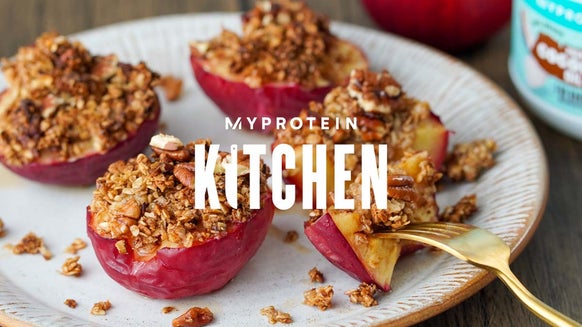
Feeling constantly hungry can derail any plan to eat healthier. It's a common challenge, but understanding the science behind your body's hunger signals and knowing which strategies work to manage them can transform your relationship with food. This guide provides practical, evidence-based methods to help you eat healthily and sustainably without the constant battle against cravings.
- Hunger and Appetite: What's the Difference?
- Supplements for Managing Appetite
- How to Control Intense Hunger and Cravings
Hunger and Appetite: What's the Difference?
Before we dive into solutions, let's clarify the two distinct sensations people often confuse: hunger and appetite.
Hunger is the body's physiological demand for food. It's driven by a complex interplay of hormones (like ghrelin, the “hunger hormone”, and leptin, the “satiety hormone”) and your body's need for energy to function. This is true physical hunger.
Appetite, on the other hand, is the psychological desire to eat, often triggered by external cues. Think about the irresistible aroma of freshly baked bread, the sight of a delicious dessert, or even emotions like stress, boredom or happiness. While not a true physical need, appetite can be a powerful driver of wanting to eat.
If you want to get a grasp on how to manage hunger, you need to control both physiological and psychological sides of it.
Tips for Controlling Hunger & Appetite
Many natural approaches can significantly reduce feelings of hunger and empower you to manage your appetite. These methods centre on strategic dietary choices and sustainable habits that promote lasting fullness and energy balance.
1. Prioritise Protein
Protein stands out as a champion of satiety, the feeling of being full after eating. When you consume protein, it triggers the release of specific hormones that signal fullness to your brain, naturally leading to reduced overall food intake.
How it helps: Protein slows down gastric emptying, stabilises blood sugar levels and directly reduces levels of ghrelin, the primary hunger hormone.
Practical tips: Include a high-quality source of lean protein in every meal and snack. Good choices include chicken breast, fish, eggs, Greek yoghurt, tofu and lentils. Protein supplements (shakes, bars, etc) provide a quick, handy boost when you need them.
2: Embrace Fibre
Fibre, especially the soluble kind, is a game changer for satiety. It absorbs water in your digestive tract, forming a gel-like substance that slows down digestion and nutrient absorption. This extended process promotes a prolonged feeling of fullness.
How it helps: Fibre adds substantial bulk to your meals without contributing significant calories, effectively filling your stomach and promoting satiety signals.
Practical tips: Make whole grains (oats, brown rice, quinoa), a vibrant array of fruits (apples, berries, pears), non-starchy vegetables (broccoli, leafy greens, carrots), legumes (beans, chickpeas, lentils), and nuts and seeds staples in your diet.

3: Don't Mistake Thirst for Hunger
Surprisingly, what often feels like hunger is simply dehydration. Staying hydrated throughout the day helps you differentiate between true hunger and thirst, and can actively contribute to feelings of fullness.
How it helps: Water temporarily occupies space in your stomach, sending satiety signals to your brain.
Practical tips: Start your day with a large glass of water. Drink a glass of water before each meal. Keep a reusable water bottle handy and sip throughout the day. Herbal teas can also contribute to your daily fluid intake without adding calories.
4: Choose Healthy Fats
Far from being "bad," healthy fats are indispensable for satiety and overall health. They are digested slowly compared to carbohydrates and protein, leading to a sustained feeling of fullness that lasts for hours.
How it helps: Healthy fats significantly slow down stomach emptying, which is crucial for managing hunger over longer periods and preventing rapid spikes in appetite.
Practical tips: Incorporate sources like avocados, nuts, seeds, extra virgin olive oil, and fatty fish (salmon, mackerel, sardines) into your diet in moderation. These add flavour and keep you satisfied.

14 Healthy Fat Foods You Should Eat
Here’s what to include and what to avoid when it comes to fats. ...
5: Master Mindful Eating
Mindful eating is about reconnecting with your food and your body's internal cues. It involves paying conscious attention to the taste, texture and aroma of your food, as well as recognising your body's hunger and fullness signals. Eating slowly and without distractions can profoundly impact how satisfied you feel.
How it helps: Mindful eating gives your brain sufficient time (approximately 20 minutes) to register that you've eaten enough, helping to prevent overeating.
Practical tips: Set aside dedicated meal times. Eat slowly, savour each bite, and chew your food thoroughly. Eliminate distractions like phones, TVs and computers during meals. Focus solely on the experience of eating.
6: Get Quality Sleep
Sleep deprivation is a silent disruptor of hunger-regulating hormones. Lack of sleep can throw ghrelin (which stimulates hunger) and leptin (which signals fullness) out of balance, often leading to increased hunger and intense cravings, particularly for high-calorie foods.
How it helps: Restorative sleep helps rebalance these crucial hormones, supporting healthy appetite regulation and reducing the likelihood of late-night snacking.
Practical tips: Aim for 7-9 hours of quality sleep per night. Establish a consistent sleep schedule (even on weekends). Create a relaxing bedtime routine to signal to your body it's time to wind down.

How do I sleep better? | Tips to Sleep Better
7: Manage Stress
Chronic stress triggers the release of cortisol, a hormone that not only stimulates appetite but also promotes fat storage, particularly around the abdomen. Beyond the hormonal impact, emotional eating is a very common coping mechanism for stress.
How it helps: Actively reducing and managing stress can help regulate cortisol levels, reducing the physiological and psychological urge to eat for comfort.
Practical tips: Integrate stress-reducing activities into your daily routine. This could include regular exercise, meditation, yoga, deep breathing exercises, spending time in nature or engaging in hobbies you enjoy.
8: Stay Active
While exercise can temporarily suppress appetite in some individuals, its long-term benefits for hunger management are even greater. Regular physical activity plays a key role in regulating appetite-related hormones and improving overall metabolic health.
How it helps: Exercise helps balance energy intake and expenditure, promoting a healthy weight and improving your body's sensitivity to satiety signals.
Practical tips: Aim for a mix of cardiovascular exercise (eg running, cycling) and strength training. Even consistent brisk walking or integrating more movement into your day can make a substantial difference.
Supplements That May Help Manage Appetite
It's crucial to approach supplements as complementary to a balanced diet and healthy lifestyle, as they are supplements, not replacements. Always consult a healthcare professional before taking any new supplements.
Protein Supplements: Protein is known for its satiety-promoting effects, helping you feel fuller for longer.
Impact Whey Protein: This protein powder can help you increase your daily protein intake. Impact Soy Protein: A plant-based protein option, soy protein isolate can also contribute to your daily protein goals.
Meal Replacement Products: These can be a convenient way to manage calorie intake while still providing essential nutrients.
Protein Meal Replacement Blend: This blend is designed to be a convenient meal replacement, contributing to feelings of fullness.
L-Carnitine: L-Carnitine is an amino acid that plays a role in energy metabolism within the body. Glucomannan: A type of soluble fibre derived from the konjac plant. It absorbs significant amounts of water in the gut, forming a viscous gel that can promote feelings of fullness and slow digestion. Green Tea Extract: Contains catechins and caffeine, which may have a modest effect on metabolism and fat oxidation. Research suggests a potential impact on appetite, but more studies are ongoing. Fenugreek: A herb rich in soluble fibre. It may help slow the digestion and absorption of carbohydrates and fats, potentially contributing to satiety. Yerba Mate: A traditional South American herbal tea, it contains caffeine and other compounds that may influence appetite and energy levels, similar to coffee but with a different stimulant profile.
How to Control Intense Hunger and Cravings
Sometimes, hunger feels overwhelming, or you experience intense, almost uncontrollable food cravings. Here's how to tackle them head on:
Identify Your Triggers: Pause and reflect. Are you truly physically hungry, or is this feeling linked to stress, boredom, fatigue, a specific emotion or even just habit? Understanding your triggers is the first step to finding alternative, healthier coping mechanisms. Plan Your Meals Strategically: Eating regular, well-balanced meals throughout the day helps prevent significant hunger that can lead to overeating or impulsive, unhealthy food choices. Don't skip meals. Keep Healthy Snacks Handy: If you anticipate hunger between meals, have readily available, nutrient-dense snacks. Think fibre-rich fruits (an apple, a banana), crunchy vegetables (carrot sticks, bell pepper slices), or a small handful of nuts or seeds. Distract Yourself: When a craving hits, try implementing the "10-minute rule." Wait 10-15 minutes and actively distract yourself with an engaging activity — go for a short walk, read a chapter of a book, call a friend, or tackle a small chore. Often, the intensity of the craving will significantly diminish or pass entirely. Address Emotional Eating: If you consistently find yourself eating due to emotions (stress, sadness, anxiety), consider seeking professional support from a therapist or counsellor. Exploring stress-reduction techniques (as mentioned earlier) can also be invaluable.
An Important Note on Disordered Eating
While the tips above are effective for general hunger and craving management, it's crucial to recognise an unhealthy relationship with food. Disordered eating — restrictive dieting, binge eating, or even an unhealthy obsession with "clean" eating — can significantly affect physical and mental health.
These behaviours often stem from underlying psychological factors, body image issues or societal pressures. If you find yourself constantly preoccupied with food, experiencing extreme guilt or anxiety around eating, if your eating habits are negatively affecting your daily life and wellbeing, you should seek advice from a GP or specialist. Hopefully, they’ll be able to provide tailored support to help guide you towards a more balanced relationship with food and your body.
Take Home Message
Learning to manage hunger and appetite is a personal journey whose success relies on a combination of mindful eating practices, strategic food choices, and consistent healthy lifestyle habits. By prioritising nutrient-dense foods, staying hydrated, getting high-quality sleep and managing stress, you can drastically improve your ability to control your hunger and achieve your weight management and overall healthy living goals.
Remember, consistency is crucial. The most successful approach is one that is personalised to fit your lifestyle, preferences and individual needs. Start small, build sustainable habits, and celebrate your progress along the way.








